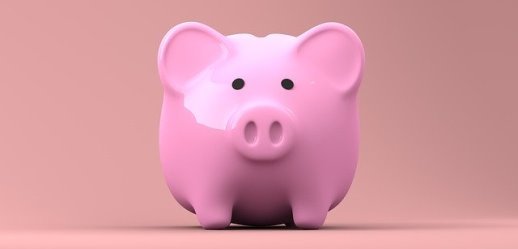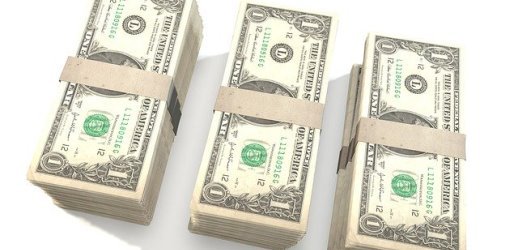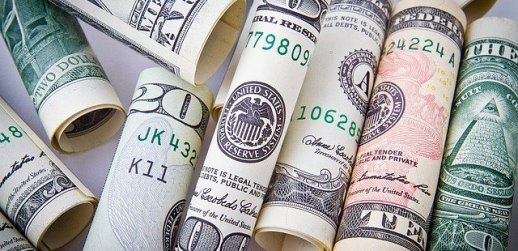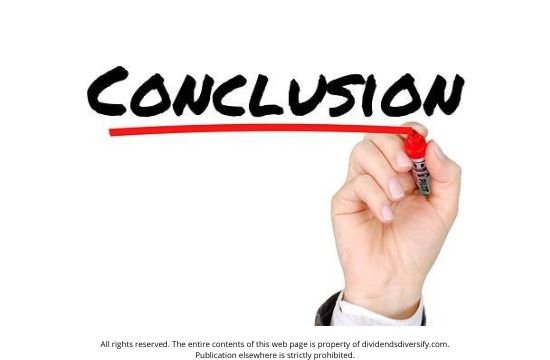Easy Finance Tips To Budget Like A Pro And Save A Ton Of Cash!
Let’s talk about how to increase personal cash flow. Because in my opinion, it is the building block to wealth creation.
And dive into the topic of personal cash flow management today. So you can put these personal finance tips into action to free up cash flow for your family.
Why is today’s article important? Because cash management is a foundation piece to making better financial decisions.
Make good financial decisions. Then, sit back and watch your personal cash flow increase.
Let’s get started…

Disclosure: At no cost to you, I may get commissions for purchases made through links in this post.
How To Increase Your Personal Cash Flow In 5 Easy Steps
Here are the 5 steps for improving your personal cash flow. They will serve as an outline for the rest of this article.
- List all of your income sources
- List all of your expenses
- Create a personal cash flow statement
- Increase your income
- Reduce your expenses
Before we go through each of these in detail. Allow me to lay in some background information…
What Is Personal Cash Flow?
First of all, personal cash flow takes into account your cash inflows. That is the money coming into your household.
Your paycheck may be the first thing that comes to mind when thinking of cash inflows. You may have others. And, we will want to maximize every potential source of cash.
Furthermore, we must consider cash outflows. They are commonly referred to as your expenses. You know, all of those bills you must pay each month for living accommodations, food, and transportation.
Finally, by deducting cash outflows from cash inflows we get net cash.
Most people think about their net cash every month. Net cash is the amount of money you have leftover at the end of the month after paying all your bills.
Why Is Personal Cash Flow Important?
I said it at the beginning. Personal cash flow is one of the most important building blocks for wealth creation.
You will never achieve financial freedom. Or, have financial peace if you have negative net cash on a long-term basis.
The goal is to create positive net cash each month. Why?
- Positive cash flow allows you to pay down debt
- Net cash flow is an important input for investing in assets
- And positive cash flow increases your net worth.
The more positive money flow you have, the more money you will make. The more money you make, the faster you can build up your finances.
The faster you build up your finances, the sooner you will achieve other important financial goals.
Get personal cash flow management right, and wealth-building becomes a self-sustaining, accelerating process.
How Do You Calculate Personal Cash Flow?

The calculation of your free cash flow is quite simple.
- Cash inflows
- Minus cash outflows
- Equals net cash
But, there’s a little more to the process than just a calculation. Let’s go through the details. These steps will allow you to streamline your financial processes.
1. Increasing Personal Cash Flow Starts By Listing All Of Your Income Sources
Think of your income from 2 primary sources.
Income From Activity
First of all, you have income from your activities. Income from an activity is where you trade your time for cash inflows.
Here are a few examples.
Recurring paycheck: The hard-earned money you make from your 9-5 job. You may be a salaried employee. Or, get paid by the hour.
Bonuses & Commissions: Don’t forget about non-recurring cash flow from your job. Salespeople often make a commission based on closing new deals. And many people receive an annual bonus if their work performance justifies it.
Side hustle: Many people have side hustles. Walking dogs or driving for Uber are a couple of examples. Or second jobs. For instance, a part-time retail clerk job at a local store.
Small business: Get it right and a side hustle can turn into a full time business. With all the challenges and rewards that come with it.
Manage your business well. And watch the cash flow in.
Income From Assets
Income from assets is a great form of cash flow. Why? It is passive income.
You are no longer trading your time for dollars. As people like to say, cash flow from assets allows you to “make money while you sleep”.
Examples of income-producing assets include:
Financial assets: This category includes things like:
- Saving accounts
- Certificates of deposit
- Stocks
- Bonds
- Mutual funds
- Exchange-traded funds.
Financial assets contribute to your cash inflows by paying interest and dividends.
Physical assets: Many physical assets have the potential to improve your cash flow inflows.
How is that? Well, they may pay rent. For example, rent from a real estate holding. Or, pay cash in the form of revenue on the sale of a product that you have created.
Hopefully, you get the idea. Think of every cash inflow that you have and create your list.
That’s income. Make it a short-term goal to increase your income this year.
Let’s move on to the other side of the calculation, your expenses. It’s the second of our 5 important steps about how to increase personal cash flow.
2. Increasing Personal Cash Continues With Listing All Of Your Expenses
We thought of personal cash inflows in 2 categories. Cash flow from activities and cash flow from assets.
Similarly, we are going to think of cash outflows in 3 categories.
- Frequent and recurring
- Infrequent and recurring
- Unexpected
Frequent And Recurring Expenses
Most of your expenses are going to fall into this category. The list runs long. Some examples include your rent or mortgage, utility bills, groceries, and loan payments.
Infrequent And Recurring Expenses
Since these cash outflows are infrequent, they are more difficult to identify. Usually, they come up once per year.
Things like gifts for the holidays. Regular maintenance of your home. And renewing your automobile license each year.
Unexpected Expenses
Unexpected expenses are the worst. But they happen. Unexpected expenses include things like your furnace needing replacement. Or, repairs to your car due to a collision.
So now we know what to look for. What do we do with all of this new knowledge?
And the answer is: to create a personal cash flow statement. Or, it is also known as a personal cash flow worksheet.
As we continue on with step 3 of our 5 ways to increase personal cash flow…
3. Create Your Personal Cash Flow Statement

Here is an example of what a personal cash flow statement looks like. Consider it a personal cash flow template to begin preparing your very own.
Sometimes a personal cash flow statement is referred to as a budget. Whatever you call it, not having one is one of the biggest financial mistakes you can make.
Take your data from the income and expense areas we just discussed. Then create your personal cash flow worksheet.
Your statement should look similar to the table below. You may not have all the items listed. Or, you may have others that are not shown.
This is just an example template so you can get your family’s cash flow statement organized. And start running your finances like a business.
The amounts are just examples too. Yours will surely be different depending on your lifestyle and where you live.
Table 1: Example Of A Personal Cash Flow Statement
| Paycheck, net of taxes | $40,000 |
| Side hustle income | $1,000 |
| Interest & dividends | $500 |
| Total cash inflows | $41,500 |
| Mortgage | $15,000 |
| Utilities | $2,000 |
| Property taxes | $3,000 |
| Home maintenance | $2,000 |
| Car loan | $3,000 |
| Gas for car | $1,000 |
| Car maintenance | $1,000 |
| Groceries | $5,000 |
| Insurance | $2,000 |
| Entertainment & gifts | $2,000 |
| Student loans | $1,000 |
| Health care | $2,000 |
| Unexpected expenses | $2,000 |
| Total cash outflows | $41,000 |
| Net cash flow | $500 |
And there you have it. An example of a personal cash flow statement. Cash inflows minus cash outflows equal net cash.
And don’t be discouraged if your net cash flow is negative right now. Get serious about making your cash flow positive. And then, make that positive number larger every month and every year.
Finally, do you have a side hustle or small business? Then these same steps apply to creating a cash flow forecast for a business endeavor.
Uses For A Personal Cash Flow Statement
So, what’s the point of putting together your own personal cash flow statement? Well, it’s the cornerstone of solid personal cash flow management. It helps you avoid financial problems.
Why is that? Because it’s hard to manage what you don’t measure. Put another way, with measurement, comes performance.
When you track and manage your money flows, they become easier to manage. In turn, better management will lead to more cash in your pocket.
So, develop a financial goal to maintain a personal cash flow statement. You will be glad you did. Because it will become a cornerstone piece of your financial planning efforts.
Now for the good stuff. Let’s move on to improving your cash flows.
How To Improve Personal Cash Flow Using Your Cash Flow Statement
So, use your personal cash flow statement as a tool. Make improvements and free up cash.
How? Ask yourself, how can I increase my cash inflows? And, how can I decrease my cash outflows?
Let’s go through some of the levers you can pull to increase your personal cash flow next.
4. Increase Your Income To Improve Personal Cash Flow
It should be obvious by now that increasing your income will improve your family’s cash flow. Any of these ideas can be great short-term or long-term financial goals to include in your financial plan.
Here are some ideas to consider.
Negotiate A Pay Increase
Ask your employer for a raise. If the answer is no, ask what you need to do to get one. How does your performance have to improve? What additional responsibilities do you need to take on?
Get A Higher Paying Job
Make sure you are getting paid market value for your skills. If your current employer won’t pay market value, then look for a new employer that will.
Sometimes changing employers is the quickest way to make more money. Don’t be hasty. Set this as a mid-term financial goal and get after it.
Whatever you decide to do with your job or career, think about this. Figure out what you are good at. Then, be great at it.
Start A Side Hustle
The list of side hustles is endless these days. The internet has matched people with goods and services to sell to those that are willing to pay for them.
Walk dogs. Drive for Uber. Start a blog. Create an e-book or product. Start a hobby farm in your backyard.
Declutter And Sell Your Stuff For Cash
Look around your home for things of value that you no longer use. Check eBay or niche sites to see if there is market value.
A few years ago I sold off some audio equipment and bicycles for hundreds of dollars.
Generate Rental Income
Renting out a room in your home doesn’t require you to make any extra investment. Services like Airbnb make it easy to connect with interested renters.
And you can make a significant income. The additional income will depend on the size and condition of your place along with your location.
Invest In Assets That Produce Income
Once you turn your net cash positive, start investing in financial assets that produce income. Interest and dividends are some of the most passive income you can have.
5. Reduce Expenses To Maximize Personal Cash Flow

Just putting your expenses down on paper will help you. How? You now know where your money is flowing.
Can you identify any areas where your cash outflows can be reduced? I’m sure you can. But here are a few ideas to consider.
Find A Cheaper Place To Live
First of all, there are many pros and cons when choosing a place to live. Furthermore, housing costs tend to be one of the largest family cash outflow items.
If moving is an option, consider a lower-cost home. Either downsize your square footage or choose a lower-cost location or both.
Hold On To Your Old Car
Get the most time and mileage out of your old car before you get another one. When you have to get a “new” car, buy used.
Bid Out Your Auto & Home Insurance
Most insurance companies will increase their home and auto insurance rates each year. Bid out your insurance every year or two and you are likely to get a lower rate.
Find Low-Cost Life Insurance
Life insurance is important to protect your loved ones. Shop for low-cost options.
Limit Dining Out
Restaurants are more expensive than dining at home. This is especially true after throwing in drinks, taxes, and tips.
Don’t deprive yourself, but be conscious of your cash flow from dining out. It can add up fast.
Watch Your Grocery Bills
Look for sale prices. Avoid impulse items. Buy less processed food and prepare it at home.
All of these actions will reduce your grocery bill.
Skip The Pricey Drink
Make your coffee or tea at home. And, avoid the huge markups that coffee shops charge.
Save On All Your Online Purchases
I signed up for Rakuten. And now save on all my online purchases.
Also, Rakuten gives you $10 of cash just for signing up and making your first purchase.
This is free money to improve your family’s cash flow. So, sign up with Rakuten to get your free cash right here.
Keep Your Vacation Costs In Check
Vacation costs can really add up. Choose a driving destination. That saves airfare and rental car costs.
Stay in a place with a kitchen. Have a few meals in. I find it relaxing to cook someplace else. The cocktails are a lot cheaper too!
Plan Fun Low-Cost Activities
Whether you are at home or on vacation, some of the best things are inexpensive.
Take a hike in the state park. Go to a parade. Have a picnic by the lake.
Skip The Gym
Walk, jog, bike, or stretch. These are some of my favorite exercises. And they are free.
Save on that gym membership. It always seems like a good idea to sign up at the beginning of the year. But, do you use the gym enough to justify the monthly cost of a gym membership?
Keep Your Investment Costs Low
Once you turn your cash flow positive, you want to put that excess cash in financial assets.
But, be sure to keep your investment costs low. Invest in low-cost exchange-traded funds. Buy and sell those funds with a free brokerage account.
I use Webull for free online stock trades. You can sign up with Webull here. You get free stock just for signing up!
Pay The Least Amount Of Taxes
Do your taxes yourself and save the tax accounting bill. But be sure you know what you’re are doing.
The goal is to pay the least amount of tax allowed by law. And if you are considering moving to and living in a new state. Don’t forget to check that state’s income tax rates.
Some states do not have an income tax. While others will take a good chunk of your income for the “privlege” of living there.
Refinance Your Debt
Interest rates are historically low. So, reduce interest costs by refinancing your debt.
Do you have a mortgage on your home? That’s the first place I would look to refinance.
Do you have other loans or credit card debts? Consolidate and refinance them under a home equity line of credit.
And taking the discussion about debt one step further…
Debt Payoff Is A Great Use Of Your Personal Cash Flow

As soon as you have created positive net cash, use it to pay off debt. Being debt-free, or at the very least having only mortgage debt is a big step toward financial peace.
Summary: How to Increase Personal Cash Flow in 5 Easy Steps
Remember to follow these steps to improve your personal cash flow:
- Identify your income sources
- Itemize all of your expenses
- Create a personal cash flow statement
- Make more money
- Spend less money
And don’t forget to increase personal cash flow with personal finance tips such as these…
- Cash inflows minus cash outflows equal net cash
- A personal cash flow statement is an important tool
- And by all means: Payoff debt!
Resources To For Improving Your Personal Cash Flow Management

Author Bio: Tom Scott founded the consulting and coaching firm Dividends Diversify, LLC. He leverages his expertise and decades of experience in goal setting, relocation assistance, and investing for long-term wealth to help clients reach their full potential.
Hi Tom,
Solid advice. I like that you mentioned decluttering and selling, which I think can be a nice source of supplemental income these days. Lily and I occasionally sell stuff over the internet that we no longer use, and it brings us a few hundred dollars a year that we would not have otherwise.
Cheers,
Miguel
Thanks, Miguel. We could stand to do another purge too. Any little way to increase one’s personal cash flow is a good habit to get into. Tom Tom
I haven’t tried selling anything recently as I wonder if the demand will be lower because of social distancing.
Great post, I like the way you put it—> income from activity or income from assets.
That is a good point GYM. I thought about the “new normal” as I was writing this and how some of the income-generating activities may change. I decided that most will be back to the way they were by 2021. At least that’s my hope! Tom
Good article. If cash flow is not positive then one cannot save.
So very true DP. Thanks, Tom
Great ideas here. I’m in the midst of de-cluttering but also wondering how difficult it will be to sell items at the moment. People are likely reluctant to meet or exchange items/money right now.
I always find side hustle money so difficult to estimate and work into a cash flow statement, because it’s either sporadic or fluctuates a fair amount year over year.
You make some good points. I’ve always viewed side hustle money as a bonus when I earn some. And try not to count on it for expenses. Tom